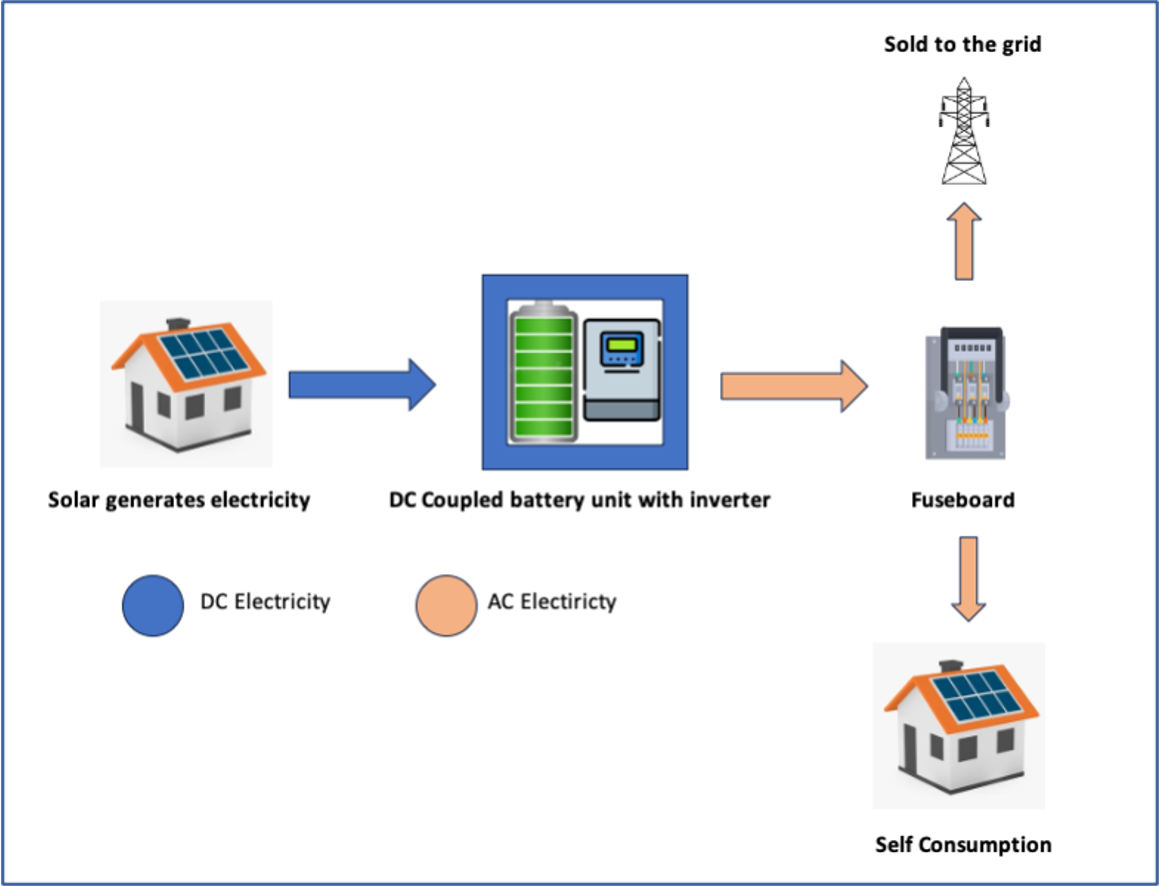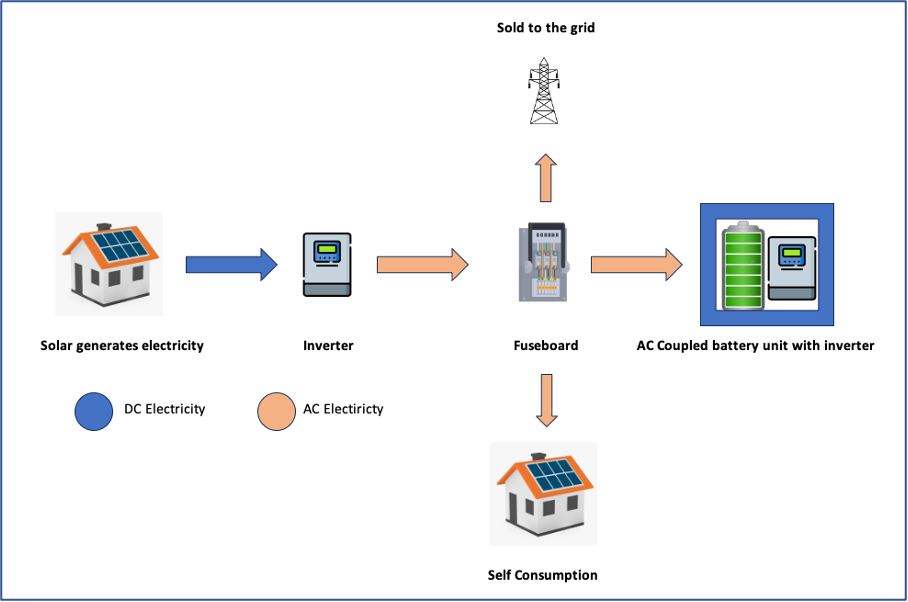What is the difference between DC coupled and AC coupled solar batteries?
Solar batteries can be set up in one of two ways:
- DC coupled batteries which connect on the DC side of the system.
- AC coupled batteries which connect on the AC side of the system.
To understand what that means, a simple recap of how Solar Panels generate electricity is necessary.
How do Solar Panels generate electricity?
The PV cells in solar panels absorb energy from the sun and generate a Direct Current (DC). The DC electricity generated by the solar panels is not directly usable for most home appliances, which require alternating current (AC). An inverter changes the DC electricity into AC electricity. Once changed, the electricity travels to a fuse board and is then routed to the various appliances and circuits around the home.
DC coupled batteries
As the name suggests, DC coupled batteries connect to the system whilst the electricity is still Direct Current (DC) or in other words, before the inverter has changed the electricity produced into Alternating Current (AC). The energy produced is either used by the household or is sold back to the grid, via the smart export guarantee (SEG) scheme.

Advantages of DC coupled batteries
- Efficiency – the main benefit is that the electricity produced is only inverted once. Solar panels produce DC electricity which is changed into AC electricity in order to power your home appliances or alternatively, to sell back to the grid. Every time this conversion occurs, a little bit of energy is lost. The more often this conversion occurs, the more energy that is lost in the process. The best-case scenario will be the least number of conversions using the most efficient inverter. Companies such as Tesla and Solar Edge quote round trip efficiencies of greater than 90%
- Affordability – a DC-coupled battery features a reduced number of components. This conserves space, decreases the likelihood of failures, and lowers the cost of installation.
Disadvantages of DC coupled batteries
- The batteries have to be in close proximity to the inverter. This makes the system less flexible if space is an issue.
AC coupled batteries
An AC coupled battery connects on the AC side of the system (into the fuseboard). In other words, DC electricity from your solar panels is first changed into AC electricity by an inverter, making it ready to power your home. If this energy isn’t immediately needed, the AC battery inverter changes it back to DC for storage in your solar battery. When the stored energy is required, it is once again converted, this time from DC to AC, to ensure it can be safely used by your home appliances.

Advantages of AC coupled batteries
- Compatibility – An AC battery such as the Tesla Powerwall can be installed without having to think in terms of the compatibility between the solar inverter and the battery. It is independent of the solar system as it is directly connected to the fuseboard. In difference, a DC-coupled system requires swapping out the existing solar inverter for a DC battery/inverter unit.
- Retrofitting – as it is independent of the solar system, it is easy to retrofit with existing systems.
- Flexibility – the batteries do not have to be in close proximity to the inverter which gives you more choice in terms of where to place both systems in the home.
Disadvantages of AC coupled batteries
- Electricity produced from solar panels is inverted three times before the electricity stored in the battery is used to power your appliances. Firstly, the electricity produced is changed from DC to AC using the solar inverter. The energy that is not used or sold back to the grid is changed back to DC electricity to store it in the battery (batteries only store DC electricity). Once the electricity is ready for use, it is converted back to AC electricity and used in the home.




